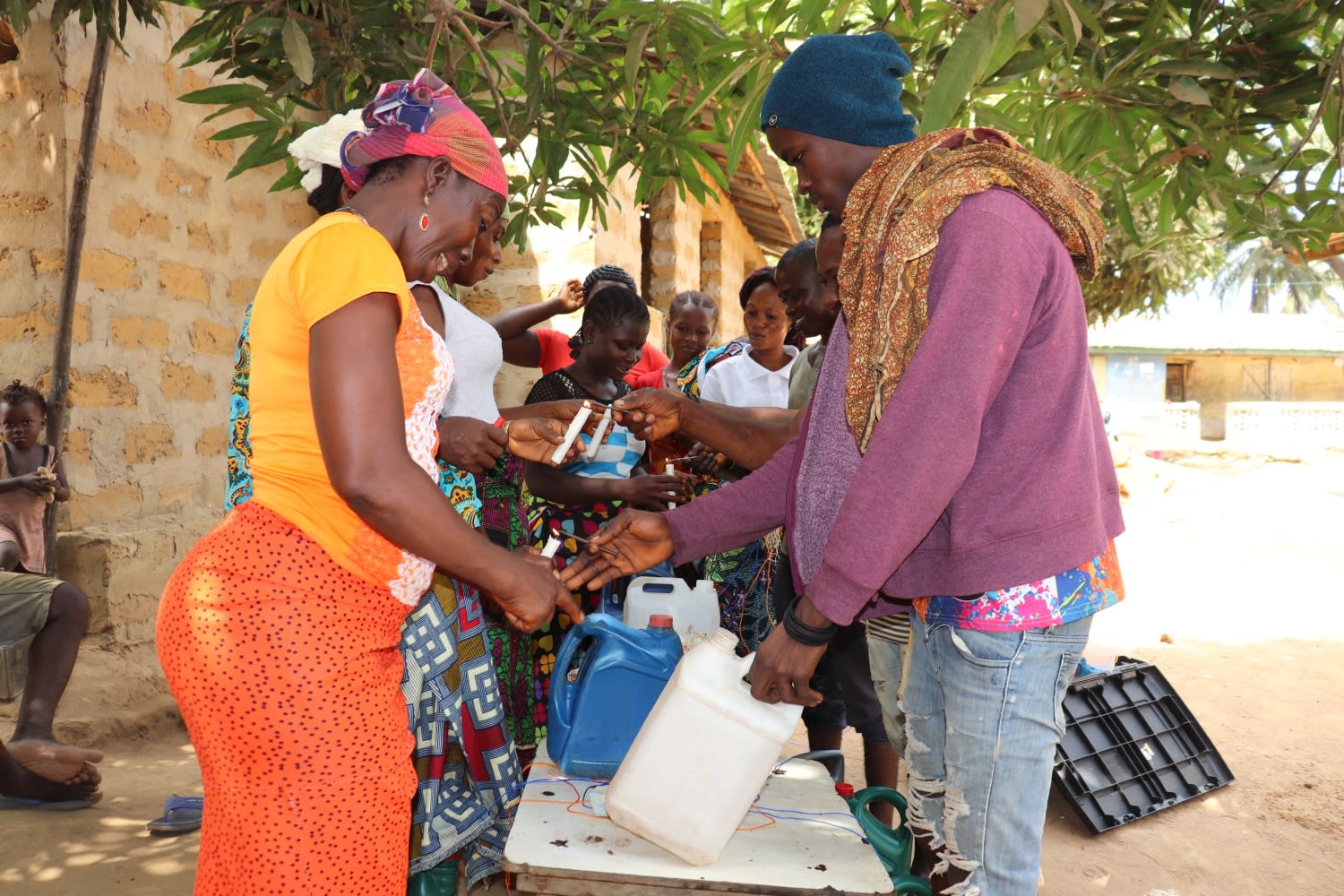Life in Kamen, Sierra Leone starts here around 5:00 in the morning. After prayers, the men pick up their nets they mended the night before and head off for fishing, depending on the tide. Children and women go to the stream located up to a mile away from some homes because it is the only reliably available water source in the community. There is one private well that is only open to the public at the whims of the owner.
The road to the stream is uneven, so people must walk carefully in the early morning light to prevent getting hurt on the journey.
"I am seriously afraid of going down this hill every day, almost four times, to fetch water. I really don't have an option," said Alimamy, a 15-year-old we met while visiting the community.
Most parents will not send their young children alone due to concerns about them getting injured. The tension or struggle for water rises early in the morning and late in the evening - when the stream is most crowded.
"I had to go with my child to the hospital who accidentally fell and sustained injuries fetching water," said Mohammed Kargbo, a local fisherman.
The water itself is not safe for drinking. Cases of dysentery, typhoid, and diarrhea are the reported health implications for drinking this water.
"Water has always been our problem in this area. We really want clean and pure water to save lives," Mr. Kargbo continued.
After the children fetch water for the morning chores, they go to school. Women continue on with the daily chores and tend to gardening and petty trading. When the children return home from school, they fetch more water and continue with the afternoon chores and extra school lessons.
What we can do:
New Well
We will be drilling this well at #22 Mission Road. This project will relieve the people here of the their water challenges.
Mission Road is a street that stretches almost a mile with houses at the right and left when coming from Kamem. The houses on the right are very close to the gully by the Atlantic ocean. From the road, one can see and hear the waves of the sea. Fishing and gardening are the most predominant occupations in this community, due to the proximity to the sea.
Our team will drive over the LS200 mud rotary drill rig and set up camp for a couple of nights. Once the well is drilled to a sufficient water column, it will be cased, developed, and then tested. If these tests are positive, our mechanics will install a new India Mark II pump.
This community has been pushed to open, contaminated well for their water. By drilling this borehole, Tholmossor Community will be provided with plenty of accessible clean drinking water.
Training
There will be hygiene and sanitation training sessions offered for three days in a row.
Community members will learn how to make a handsfree handwashing station called the "tippy-tap." We will use these tippy taps for handwashing demonstrations, and will also teach about other tools like dish racks and the importance of properly penning in animals. We will highlight the need to keep latrines clean, among many other topics.
These trainings will also strengthen a water user committee that will manage and maintain this new well. They will enforce proper behavior and report to us whenever they need our help solving a serious problem, like a pump breakdown.

 Borehole Well and Hand Pump
Borehole Well and Hand Pump
 Rehabilitation Project
Rehabilitation Project































